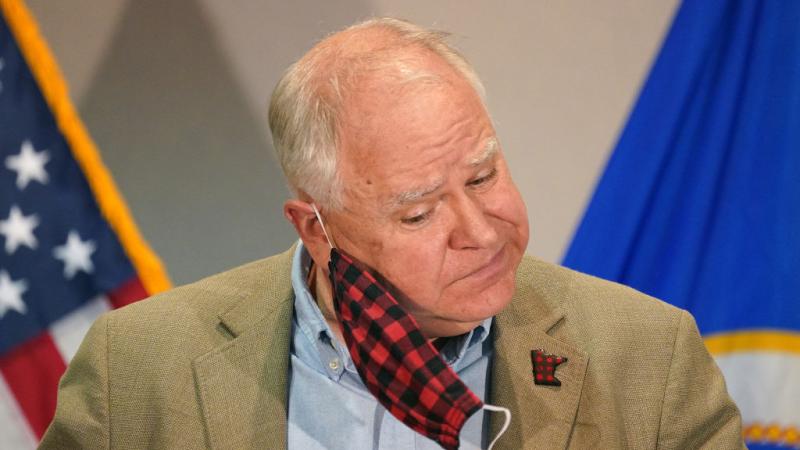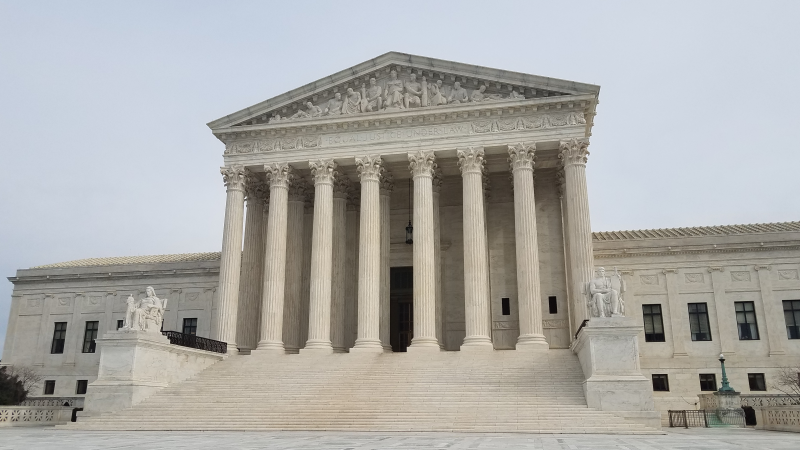No matter how MAGA debate ends, H-1B visas have an undeniable fraud problem
Two cases at end of 2024 affirm long-held warnings that immigration and visa programs need more supervision, accountability.
Shortly before Americans celebrated Christmas, two federal criminal cases affirmed long-standing warnings that the government's H-1B visa program was ripe for fraud, and slow to bring accountability.
The cases in California and Illinois brought some long-awaited justice to schemes that have tried to help companies rig a system designed for narrow high-tech skills to instead hire foreigners for jobs that should have gone to Americans.
The flurry came a year after the U.S. Citizenship and Immigration Service launched a crackdown and just weeks before a rare schism emerged inside the Make America Great Again universe that pitted pro-H-1B visa program supporters like Elon Musk and President-elect Donald Trump against usual supporters like commentators Steve Bannon and Laura Loomer, who want the program shut down.
That debate has raged throughout the Christmas holidays, with Bannon going so far as to suggest the government should pay reparations to U.S. workers who lost jobs to the H-1B foreign visa holders.
“American workers should be hired immediately to fill those gaps, and then we should start the discussions on reparations, on what they knowingly did to American tech workers,” Bannon said on his Real America’s Voice television show Monday.
Warnings date back two decades
At the end of the day, the H-1B visa program that provides special work visas for high-tech workers with specialized skills is a small drop in America’s immigration crisis: over the last decade between 70,000 and 85,000 foreigners get new H-1B work visas annually, compared to an estimated 14 million illegal aliens who flooded the border during the four years of Joe Biden’s presidency.
But no matter how the MAGA debate ends, the persistent fraud concerns have galvanized concerns on both the left and right in America. Warnings about H-1B visas date back two decades, but one of the most potent red flags occurred early in Trump’s first term when the Homeland Security Department’s internal watchdog sounded the alarm back
In an October 2017, the Homeland Security Inspector General warned the USCIS tactics for providing oversight to the program – mainly site visits -- “provide minimal assurance that H-1B participants are compliant and not engaged in fraudulent activity.”
“USCIS does not ensure the agency always takes proper and timely action when IOs identify potential fraud or noncompliance,” that report warned, identifying several shortcomings in monitoring. “…Without addressing the challenges, USCIS site visits do not fully safeguard the H-1B Program, and the agency misses opportunities to ensure funds are put to better use through more robust site visits.”
Since then multiple efforts have been launched by government agencies to tighten the program, including an effort started by Trump but abandoned by Biden that vetted applicants by skill sets and looked for an instance of one person seeking visas under multiple identities. But such efforts have been widely panned on both sides of the political spectrum as ineffective or nibbling around the ends of a persistent fraud temptation.
"I'd say it's insufficient," former U.S. immigration official Robert Law, the director of the Center for Homeland Security And Immigration at the Trump-aligned America First Policy Institute, told The Register security news site last year after the Biden crackdown began.
“I don't think the Biden administration has done anything in the H-1B space that puts integrity into the system and accountability,” Law added.
Liberal groups agreed, including the Economic Policy Institute which lamented the Biden reform “only tinkers at the edges of improving program integrity, but fails terribly to tackle any of the real problems that have been documented by investigative news reports, government audits, and researchers like ourselves.”
It added that the H-1B program “remains vulnerable to rampant fraud and abuse."
Just the News identified nearly a dozen federal criminal and civil cases since 2013 – two in the last two months -- with similar H-1B visa fraud allegations, showing the breadth of the problem and the recurring nature of how the frauds are alleged to have been committed.
Visa fraud
For instance the U.S. attorney’s office in San Francisco announced Nov. 6 that Kishore Dattapuram, 55, of Santa Clara, Calif., pleaded guilty in federal court visa fraud and conspiracy to commit visa fraud in a case that began with an indictment in 2019.
Dattapuram, a co-owner of the technology staffing firm Nanosemantics, admitted to working with others “to submit fraudulent H-1B applications that falsely represented that foreign workers had specific jobs waiting for them at designated end-client companies when in fact the jobs did not exist,” prosecutors said in announcing the plea.
“As defendants admitted, the goal of the scheme was to allow Nanosemantics to obtain visas for job candidates before securing jobs for them, thereby allowing Nanosemantics to place those workers with employers as soon as those jobs were available, rather than waiting for the visa application process to conclude, and giving Nanosemantics an unfair advantage over its competitors,” the government said.
In December, the U.S. attorney’s office in Chicago indicted a lawyer named Gerardo Dean, alleging he conspired with a hospital staffing company official “to provide false and fraudulent information to the U.S. Citizenship and Immigration Services on behalf of individuals in the Philippines who were seeking U.S. visas.
The scheme, prosecutors said in an indictment, involved filing “fraudulent H-1B and EB-2 visa petitions representing that the foreign nationals had managerial, supervisory, or higher-level jobs waiting for them at the company, when in actuality … the foreign nationals would work for the company as staff or registered nurses at lower rates of pay than what was stated in the visa petitions.”
That defendant’s alleged behavior mirrors a similar case a decade earlier in which an Indian-based technology company named InfoSys paid a record $34 million civil penalty.
“Infosys knowingly and unlawfully used B-1 visa holders to perform skilled labor in order to fill positions in the United States for employment that would otherwise be performed by United States citizens or require legitimate H-1B visa holders, for the purposes of increasing profits, minimizing costs of securing visas, increasing flexibility of employee movement, obtaining an unfair advantage over competitors, and avoiding tax liabilities,” the 2013 settlement in that case stated.
The Facts Inside Our Reporter's Notebook
Documents
Links
- H-1B visa program
- U.S. Citizenship and Immigration Service launched a crackdown
- Bannon said on his Real Americaâs Voice television show Monday
- told The Register security news site
- lamented
- U.S. attorneyâs office in San Francisco announced Nov. 6
- U.S. attorneyâs office in Chicago indicted a lawyer
- Indian-based technology company named InfoSys paid a record $34 million civil penalty
















